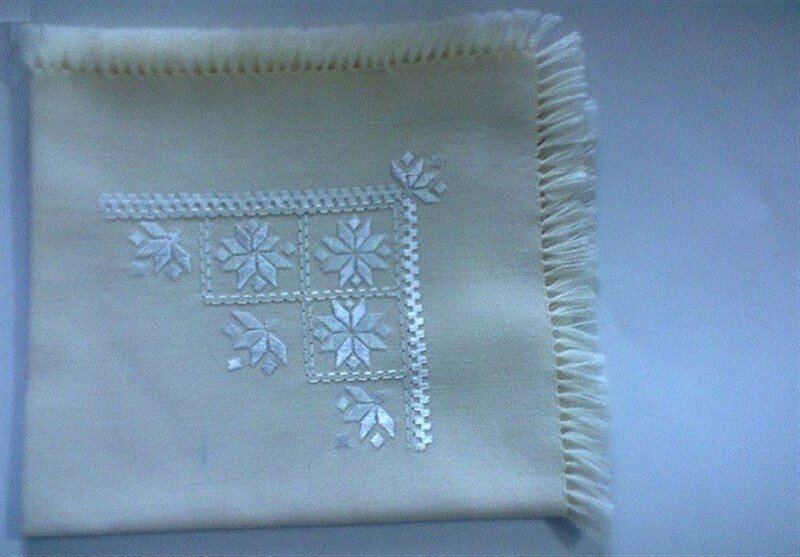Iranian handicrafts: Khameh-Duzi of Sistan-Baluchestan

TEHRAN – Khameh-Duzi is a subcategory of traditional embroidery in Iran. This craft is common in the southeastern Sistan-Baluchestan province, and in particular in the city of Zabol and its outskirts.
The craft is applied to decorate prayer rugs, busts of clothing, handkerchiefs, vests, table cloths, beddings, blankets, cushions, and many other objects.
Khameh-Duzi or Kham-Duzi is crafted by raw silk yarns and that is the reason it is named so. Regardless of the production, this craft is somehow similar to the Baluch embroidery. One difference is that in Khameh-Duzi only silk yarns that are usually all in white are used.
The word “Khameh”, which has roots in the word “Kham” with the meaning of raw, refers to the fact that raw and not dyed silk yarns are used to make embroideries on white and soft fabrics, according to Visit Iran.
The silk yarn with its special sparkle is used to make geometric motifs like square, diamond, or paper windmill pattern, on the white and matte background which not only creates a spectacular view but also it adds to the durability and strength of the thin fabric.
The motifs are applied on the margins in the form of strips, and flowers and bushes are applied in the center. In some cases, patterns are also printed with wooden blocks or painted on the fabric with pencils and carbon copy papers.
It takes complete and elaborate needle working to make a beautiful and fine piece of Khameh-Duzi. In the case of clothing, the Khameh-Duzi is accompanied by Siah-Duzi, a kind of embroidery with black yarn. For example, the buttonhole is stitched with black yarn and the collar and handcuff are decorated with black stitches.
The materials necessary for Khameh-Duzi are satin or cotton fabric, needle, mirror, and white silk yarn. This is very delicate needlework and is used as margins and very thin stitches.
Khameh-Duzi has a history parallel to the history of silk work, and they have undergone many amazing changes in time. Moreover, Khameh-Duzi is practiced as a domestic activity in parts of Yazd province as well.
AFM
